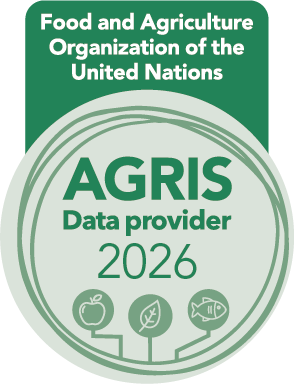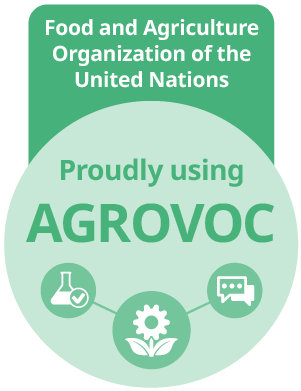Misconceptions about Fruits Consumption among Nursing Mothers
Fruits Consumption among Nursing Mothers
DOI:
https://doi.org/10.54393/df.v1i01.5Keywords:
Misconceptions, fruit consumption, nursing mothers, pregnancy fruit misconceptionsAbstract
Abstract: Poor nutritional practices especially in pregnancy and early childhood can result in dire consequences in the growth and development of a child. The nutritional status of nursing children can be determined by maternal knowledge, attitudes, and perceptions towards certain foods.Objective:This study was conducted to find out the existing beliefs and practices about food misconceptions among nursing mothers at the Sir Ganga Ram Hospital, Lahore. Methods:Data size was 100 nursing mothers and they were selected through non probability convenient sampling technique. SPSS version 21.0 was used to analyze data. Results:Findings showed that majority of mothers were practiced false dietary habits for the sake of good health of their children. Total 83 nursing mothers were practiced these misconceptions because their family elders told them. It was considered that banana increase mucus production(89), oranges increase soreness of throat(76), mango increase the chance of allergy in children, dates are hot(70) and papaya can cause miscarriage(58). Conclusions:Current Study concluded that existence of food myths and taboos was very common among nursing mothers and they also practiced it. Fruits such as papaya, mango and saffron were practiced as hot and also considered as anti-pregnancy fruits.
References
McPhie, S., Skouteris, H., Daniels, L., & Jansen, E.Maternal correlates of maternal child feeding practices: a systematic review. Maternal & Child Nutrition, 2014. 10(1), 18-43. https://doi.org/10.1111/j.1740-8709.2012.00452.x.
Wardle, J., Carnell, S., & Cooke, L.Parental control over feeding and children’s fruit and vegetable intake: how are they related? J. Am. Dietet.Assoc,2005. 105(2), 227-232.https://doi.org/10.1016/j.jada.2004.11.006.
Ekwochi, U., Osuorah, C. D., Ndu, I. K., Ifediora, C., Asinobi, I. N., & Eke, C. B. Food taboos and myths in South Eastern Nigeria: The belief and practice of mothers in the region. J. Ethnobiol. Ethnomed, 2016. 12(1), 7. doi 10.1186/s13002-016-0079-x.
Barker, L., Gout, B., & Crowe, T.Hospital malnutrition: prevalence, identification and impact on patients and the healthcare system. Int. J. Environ. Research Public hlth.,2011. 8(2), 514-527. https://doi.org/10.3390/ijerph8020514.
Nankumbi, J., & Muliira, J. K.Barriers to infant and child-feeding practices: a qualitative study of primary caregivers in Rural Uganda. J. Hlth, Population, Nutr., 2015. 33(1), 106.
Lodha, S., &Bharti, V.Assessment of complementary feeding practices and misconceptions regarding foods in young mothers. Int. J. Food Nutr. Sci., 2013. 2(3), 85-90. http://www.ijfans.com/.
Daniels, L. A., Mallan, K. M., Battistutta, D., Nicholson, J. M., Perry, R., & Magarey, A. Evaluation of an intervention to promote protective infant feeding practices to prevent childhood obesity: outcomes of the NOURISH RCT at 14 months of age and 6 months post the first of two intervention modules. Int. J. Obes., 2012. 36(10), 1292. doi:10.1038/ijo.2012.96.
Clark, H. R., Goyder, E., Bissell, P., Blank, L., & Peters, J. How do parents' child-feeding behaviours influence child weight? Implications for childhood obesity policy. J. Public Hlth., 2007. 29(2), 132-141. https://doi.org/10.1093/pubmed/fdm012.
Bucher, T., &Siegrist, M. Children's and parents' health perception of different soft drinks. Brit. J. Nutr., 2015. 113(3), 526-535. https://doi.org/10.1017/S0007114514004073.
Bhutta, Z. A., Das, J. K., Rizvi, A., Gaffey, M. F., Walker, N., Horton, S., ..& Maternal and Child Nutrition Study Group. Evidence-based interventions for improvement of maternal and child nutrition: what can be done and at what cost?.The Lancet, 2013. 382(9890), 452-477.https://doi.org/10.1016/S0140-6736(13)60996-4.
Adamo, K. B., & Brett, K. E.Parental perceptions and childhood dietary quality. Matern. Child Hlth J., 2014. 18(4), 978-995.doi:10.1007/s10995-013-1326-6.
Nisar, M. U., ulHaq, M. M. A., Tariq, S., Anwar, M., Khawar, A., Waqas, A., &Nisar, A.Feeding patterns and predictors of malnutrition in infants from poor socioeconomic areas in Pakistan: A cross-sectional survey. Cureus, 2016. 8(1).
Park, K. Park’s textbook of preventive and social medicine. Jabalpur: M/S BanarsidasBhanot Publishers, 2009. 19,504.
Meyer-Rochow, V. B.Food taboos: their origins and purposes. Journal of Ethnobiol. Ethnomed., 2009. 5(1), 18. doi:10.1186/1746-4269-5-18.
Yue, A., Marsh, L., Zhou, H., Medina, A., Luo, R., Shi, Y., ...&Rozelle, S. Nutritional deficiencies, the absence of information and caregiver shortcomings: a qualitative analysis of infant feeding practices in rural China. PloS One, 2016. 11(4), e0153385. https://doi.org/10.1371/journal.pone.0153046.
Berdan, L. E., Keane, S. P., & Calkins, S. D.Temperament and externalizing behavior: Social preference and perceived acceptance as protective factors. Developmen. Psychol., 2008. 44(4), 957. https://psycnet.apa.org/doi/10.1037/0012-1649.44.4.957.
Patil, R., Mittal, A., Vedapriya, D., Khan, M. I., &Raghavia, M.Taboos and misconceptions about food during pregnancy among rural population of Pondicherry. Calicut Med J, 2010. 8(2), 4. http://www.calicutmedicaljournal.org/2010/2/e4.pdf.
Zerfu, T. A., Umeta, M., & Baye, K.Dietary habits, food taboos, and perceptions towards weight gain during pregnancy in Arsi, rural central Ethiopia: a qualitative cross-sectional study. J. Hlth, Population Nutr., 2016. 35(1), 22. doi: 10.1186/s41043-016-0059-8.
Sethi BA, Sethi A, Ali S, Fatima MI. Food related misconceptions among breastfeeding mothers of neonates in northwest general hospital Peshawar. JKCD. 2018. 8(1),19-23.
Benakappa, A. D., &Shivamurthy, P. Beliefs regarding diet during childhood illness. Indian journal of community medicine: official publication of Indian Association of Preventive & Social Med., 2012. 37(1), 20. https://dx.doi.org/10.4103%2F0970-0218.94016.
Downloads
Published
Issue
Section
License
Copyright (c) 2020 DIET FACTOR (Journal of Nutritional & Food Sciences)

This work is licensed under a Creative Commons Attribution 4.0 International License.
This is an open-access journal and all the published articles / items are distributed under the terms of the Creative Commons Attribution License, which permits unrestricted use, distribution, and reproduction in any medium, provided the original author and source are credited. For comments









